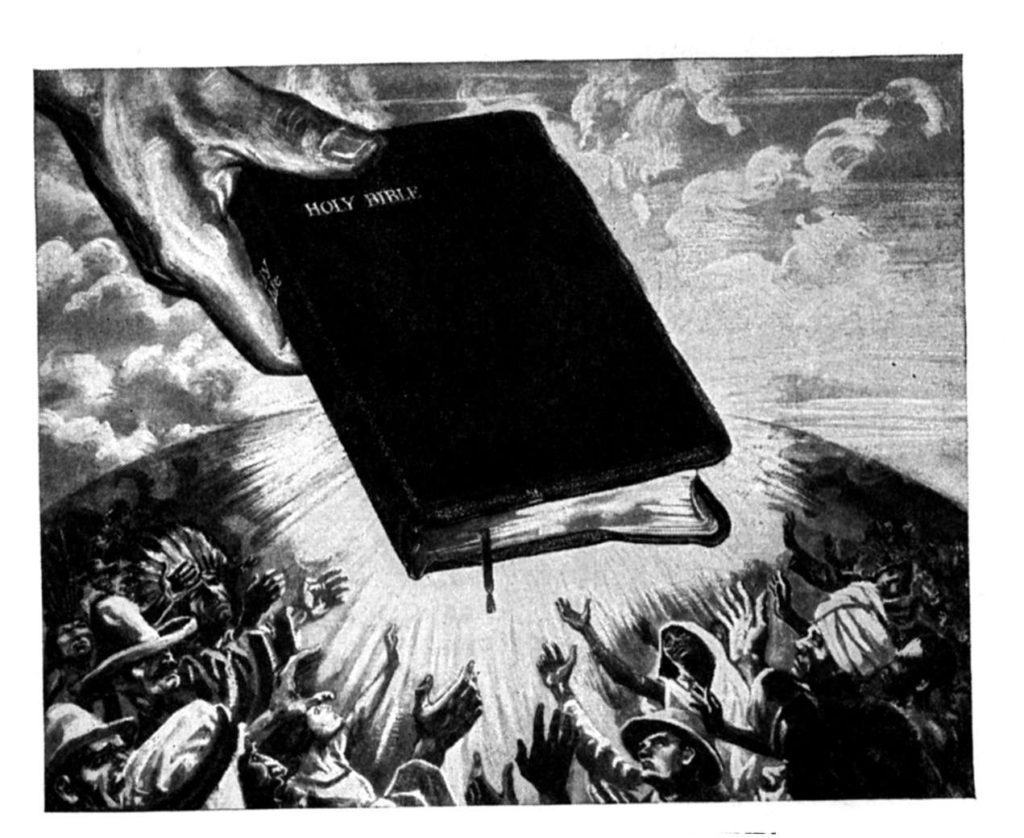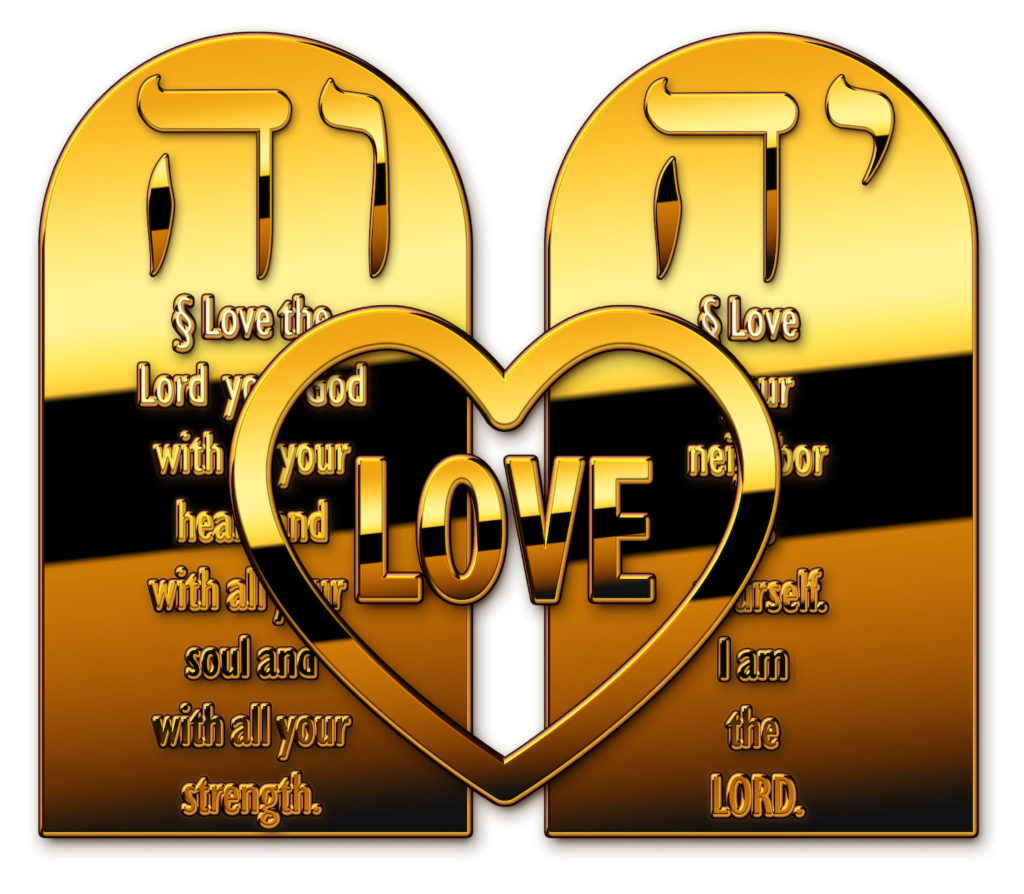
Celebrating a (Re)New(ed) Covenant Involving YHVH Writing Torah on Our Hearts
Long ago Jeremiah prophesied that YHVH would make a new (or renewed) covenant with his people Israel, which would involve both houses of Israel (Judah and Ephraim, or, prophetically speaking, the Jews and the Christians), and that he would write his Torah-law on their hearts.
Behold, the days come, saith YHVH, that I will make a new covenant with the house of Israel, and with the house of Judah: Not according to the covenant that I made with their fathers in the day that I took them by the hand to bring them out of the land of Egypt; which my covenant they brake, although I was an husband unto them, saith YHVH: But this shall be the covenant that I will make with the house of Israel; After those days, saith YHVH, I will put my law in their inward parts, and write it in their hearts; and will be their Elohim, and they shall be my people. And they shall teach no more every man his neighbour, and every man his brother, saying, Know YHVH: for they shall all know me, from the least of them unto the greatest of them, saith YHVH: for I will forgive their iniquity, and I will remember their sin no more. (Jer 31:31–34)
Contextually, in the verses surrounding this prophecy, we discover some other important details.
Verse 27, The houses of Judah and Israel were to be mingled throughout the beast (or heathen) nations of the world as punishment for breaking their covenant with YHVH that they made with him on Shavuot (the Feast of Pentecost) at Mount Sinai (Exod 19–20, 24).
Verse 28, At some point in the future, YHVH’s punishment of Israel for breaking their covenant and their resulting exile among the gentile nations will come to the end. He will rebuild and restore the nation of Israel.
Verses 29–30, Whereas in times past, Israel was punished as a collective nation for their sins when they disobeyed YHVH, and conversely were blessed when they obeyed him, in our day each person will be cursed or blessed for his own sins. Salvation is more of an individual matter now.
Verses 31–33, YHVH promises to make a new or renewed covenant with the two houses of Israel at some time in the future (from Jeremiah’s perspective). It will be different from the covenant he made with Israel at Mount Sinai in two major ways:
Though it will be a covenant with Israel collectively (both houses of Israel), it also will be made with individuals.
At that time, he will deal with the heart of each individual Israelite when he writes his Torah-law on their hearts.
Verse 34, This renewed covenant will involve mercy and forgiveness (or grace). It will involve a personal relationship between each person and YHVH (i.e., “they shall all know me…”).
Verses 35 and 37, As the sun, moon, stars, the sea, and expanse of the heavens and the earth exist, so YHVH will renew his Torah covenant with Israel. The words of Yeshua in Matthew 5:18 are reminiscent of the this prophecy. Not one jot or tittle (in Heb. yud or tag, which are the smallest elements of the Hebrew alphabet) of YHVH’s Torah will pass as long heaven and earth still exist.
Verse 36, The very survival of the nation and people of Israel (and hence the fulfillment of the covenants YHVH made with Abraham), is dependent on YHVH regathering and restoring both houses of Israel. If YHVH doesn’t bring this to pass, then YHVH is a liar and his Word is a lie and there is no hope for the world! This cannot be! Our future hope and YHVH’s reputation and character depend on it.
Jeremiah’s prophecy begin to be fulfilled during the time of the writing of the Testimony of Yeshua (New Testament). The author of Hebrews talks about this in Hebrews 8.
But now, Yeshua the Messiah has attained a more excellent public service, since He is the Mediator of a more excellent covenant, one that was legislated with better promises than the former. (Heb 8:6)
The “better promises” is everything that Yeshua taught about salvation and eternal life as a person puts their trust in him. These better promises he taught during his life and ministry, and formalized this at his last supper through the communion elements. It is all these glorious promises to which the whole Levitical and sacrificial system pointed, which, as the author of Hebrews makes clear, was fulfilled in Yeshua.
If the first covenant had been faultless, there would have been no need to look for a second one. Finding fault with THEM He said, “Look, the days are coming, says Yehovah, when I’ll enact a New Covenant with the descendants of Israel, and with the descendants of Judah. It wont be like the covenant that I made with their ancestors during the time when I took them by the hand and brought them out of the land of Egypt, because they didn’t remain loyal to My covenant, and I rejected them, declared Yehovah. But this is the covenant that I’ll enter into with the descendants of Israel after that time, says Yehovah; I’ll put My Torah in their minds—inscribing it on their innermost thoughts. I’ll be their Aloha, and they’ll be My people. No one will teach doctrine to their fellow citizens [evangelize], or a friend, or ask: “Do you know Yehovah” [witness to anyone], because they’ll all know Me, from the youngest of them to the oldest. I’ll be merciful regarding their wrongful behavior; and I’ll no longer remember their sins.” When He [Yeshua] mentioned, a New Covenant, He was saying that the first one was old and about to be repealed; and what was then old and failing, was about to disappear. (Heb 8:7–13, GV)
Other Scriptures Relating to the Renewed Covenant and the Heart of Man
The Tanakh is full of scriptures that speak of the renewed covenant where YHVH will write his Torah on the hearts of men. For example, in Jeremiah 32:40, YHVH reiterates his promise to make an everlasting promise with Israel. This new covenant will also involve him putting his fear in their hearts. As a result, they will no longer depart from him.
And I will make an everlasting covenant with them, that I will not turn away from them, to do them good; but I will put my fear in their hearts, that they shall not depart from me.
The following is a list of other scriptures that talk about the Torah being written on men’s hearts.
Deut 30:6, And YHVH thy Elohim will circumcise thine heart, and the heart of thy seed, to love YHVH thy Elohim with all thine heart, and with all thy soul, that thou mayest live.
Ps 37:31, The law of his Elohim is in his heart; none of his steps shall slide.
Ps 40:8, I delight to do thy will, O my Elohim: yea, thy law is within my heart.
Isa 51:7, Hearken unto me, ye that know righteousness, the people in whose heart is my law; fear ye not the reproach of men, neither be ye afraid of their revilings.
Ezek 11:19, And I will give them one heart, and I will put a new spirit within you; and I will take the stony heart out of their flesh, and will give them an heart of flesh:
Ezek 36:25, Then will I sprinkle clean water upon you, and ye shall be clean: from all your filthiness, and from all your idols, will I cleanse you.
Eze 36:26, A new heart also will I give you, and a new spirit will I put within you: and I will take away the stony heart out of your flesh, and I will give you an heart of flesh.
Ezek 36:27, And I will put my spirit within you, and cause you to walk in my statutes, and ye shall keep my judgments, and do them.
Continue reading






